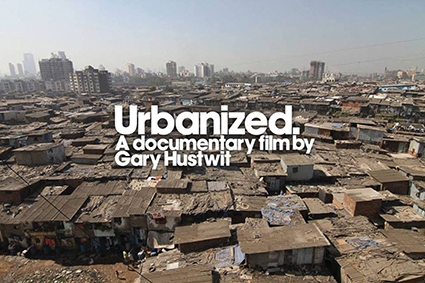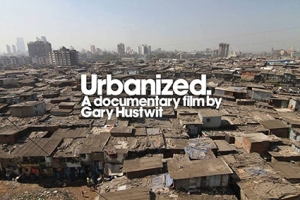Movie Night in Old Tbilisi Raises Questions for Future of City’s Walkers
Walking Tbilisi can be a hazardous prospect. Iare Pekhit, a three-year old Non-Governmental Organization based in Tbilisi, aims to change that. One step towards change took place last Saturday night, right where the Old City’s winding streets start, with a discussion and documentary film showing on the matter of urbanization in our modern world.
The film, “Urbanized,” was released in 2011, and presents its audience many of the questions facing cities and their design today. The screening was held at Kiwi Café, a non-profit vegan coffee shop and restaurant located on Vertskhili St. that, since opening over the summer, has become something of a community center for many activism-oriented groups and individuals. Though the kitchen was closed for personal orders, finger snacks, popcorn, glintwine, and cider were provided, cups and platters the only things able to pass through a room the crowd had packed to capacity.
Iare Pekhit organizers Elene Margvelashvili and Inge Snip led the evening, assisted by Irakli Zhvania, an MIT-trained architect and city planner who gave a brief introduction to the history of urban planning before the screening began. The film – which showcased places as disparate as the slums of Santiago and the central train station in Stuttgart – provided the crowd with plenty of fodder. During the discussion that took place afterwards, however, the film’s segment on Bogota, its charismatic mayor, and the public transportation network he oversees, which prioritizes pedestrians, bikes, and rapid-transit busses, took center stage, with Ms. Snip asking the attendees: “Do you think it’s possible to have the Bogota ideas in Tbilisi?”
The audience consensus seemed to be that it was possible, but only with proper city leadership. For the time being, that leadership simply doesn’t seem to exist. The old general plan for Tbilisi has been ignored for years, it was explained, with the rationale that a new general plan is being completed. In the meantime, the situation on the ground remains chaotic, plagued by a lack of communication between government ministries, inaction due to election-year cowardice, and the allocation of funds to outdated projects and solutions like highway overpasses and boulevard underpasses.
With this in mind, Ms. Margvelashvili explained Iare Pekhit’s current strategy for improving the world of pedestrians: “What we’re trying to work on at the moment are the (city planning laws) that exist and aren’t being implemented,” she said. “Things that are already in the (old) general plan. For example, parking on the sidewalk.” Furthermore, as the government eyes the looming elections, “what we’ve been trying very hard to do is convince them that this is not an unpopular decision. Of course, it will be uncomfortable to some people but in the long term everyone will see that this will make people happier, and work for the majority of people who don’t have cars.”
Certainly, the current of development in Georgia isn’t encouraging. “What is happening right now in Tbilisi, looking at the urban development tendencies, is exactly what the world is trying to get rid of,” Mr. Zhvania told the audience. “What we are doing now is what was done in the West in the 1960s. By the 70s they realized that it was absolutely wrong – and now what they are trying to get away from, [the Tbilisi city government] are trying to do!”
Iare Pekhit’s characteristic focus on advocacy through art, displayed in their “Care for your City” public art contest, of which a new round has recently been announced, and by the make-up of their staff, the majority of whom are personally involved in the arts themselves, made the choice of venue feel entirely natural. The crowd, though skewing young, drew visibly from all ages and walks of life. The organizers were themselves visibly emboldened by the result.
“I think that tonight shows that there’s a demand,” Ms. Snip told the crowd, explaining to it the changes Iare Pekhit is trying to implement on Tbilisi’s streets. “Maybe this is the right time, the opportunity to create an opportunity, to build on this and to make a change.”
Robert Isaf












